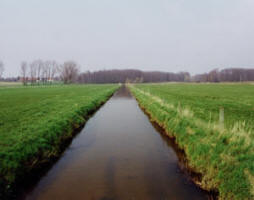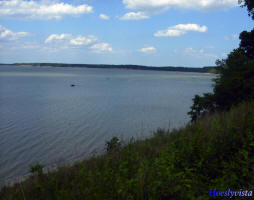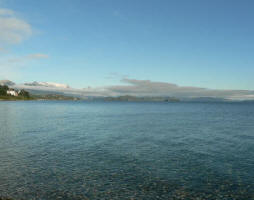 Water Cooperation for a Secure World -- Focus on the Middle East
Water Cooperation for a Secure World -- Focus on the Middle East
As we might remember, the “Blue Peace in the Middle East: International Media Conference,” was held in İstanbul on March 18-19, 2013. The event was co-hosted by the journal Turkish Review and Mumbai-based think tank Strategic Foresight Group (SFG) in partnership with the Swedish International Development Cooperation Agency (Sida). The Swiss Agency for Development and Cooperation (SDC) also cooperated in hosting the event. As a follow-up to this conference, the same group held another titled “Water Cooperation for a Secure World -- Focus on the Middle East” in Amman, the Jordanian capital, on Nov. 27-28, 2013.
During the two-day conference, the issue of trust between countries was said to be the greatest obstacle to water cooperation in the Middle East. The media, which have a major effect in molding public opinion, play a significant role in this process of water security. The role of media in raising public awareness about water was highlighted particularly.
During the conference taking place in İstanbul, the Danube and the Rhine came to the fore as models of cooperation. These rivers run through 19 and nine riparian countries, respectively. Moreover, these rivers, which are also used for navigational purposes, have severe quality and flooding problems. The process of cooperation in both basins has been going on for almost a century. The pollution and flooding problems are trans-boundary problems that affect all riparian countries, and cooperation is an unavoidable fact in both basins. This situation facilitates cooperation when compared with basins where the quantity of water is a problem. These two models of cooperation held up at the conference were hailed as an inspiration for the Middle East.
However, the Middle East is a region in which a semi-arid and arid climate prevails and water shortage is a major problem. The process of preparing agreements on the allocation of water in trans-boundary basins where water shortages are experienced is not so easy. The issue of trust among countries in regions such as the Middle East, where many conflicts take place and where water is associated with food safety, national interest and security, presents obstacles to cooperation on trans-boundary watercourses. Experiences related to the management of trans-boundary watercourses in Jordan, where water shortage is the norm and which ranks fourth for water-poor countries of the world, cooperation on trans-boundary watercourses in the Okavango and Mekong basins, Asia and South Asia, the models of Iraq and Turkey and the relevant experiences of Europe and UN were discussed during the conference in Amman.
At the conference, predominantly attended by specialists, academics, politicians and journalists from Turkey and Middle Eastern countries, participants stated they do not associate water with war, but rather focus on water as a means of finding peace. It was envisaged that this project was created by the Middle East, where a semi-arid and arid climate prevails and water shortage is common, and the problem could be solved by the countries in the region. Looking through the literature and news, it can be seen that water is often mentioned within the context of conflicts and crises. That is the reason behind the creation of “Blue Peace,” which is also an Internet platform that brings water-related news, research, specialists and journalists together.
The SFG prepared a report titled “Water Cooperation for a Secure World -- Focus on the Middle East” in relation to the conference. The report classifies countries and basins based on their level of water cooperation. According to this classification, 37 out of 148 countries that are directly connected to 263 river basins have not signed any agreement regarding water cooperation. According to the report, it is highly likely that water-related conflicts could break out in these 37 countries.
Accordingly, the political will of these countries is of great importance, if they are to be included in the cooperation process. Political will should be reinforced by building trust and cooperation. The steps that must be taken before cooperation can be listed as follows: establishing river basin organizations, the structure of the organization, levels of adherence, functions, decision making, regular talks, legal arrangements, the agreements, content, principles, rights and obligations of states, the solution mechanisms of conflicts, finance, measures related to amendment and revision, unprecedented provisions in the agreement, sharing and utilization, sharing methods, successful methods and guidelines, data management, data collection and monitoring, data exchange, data collection types, monitoring stations, monitoring frequency and the methods and processes to be pursued. In addition to these, climate change and the environment, which are important factors related to water resources, are essential for cooperation.
Above all, climate change strategies occupy an important place in our adaptation to new climate conditions. Navigation is a significant factor in the cooperation process, even if it is not present in every river basin. Lastly, conflict resolution mechanisms are the most important and final step. Past and current conflicts, types of conflict, notification, consultation, negotiation and types of conflict resolution mechanisms are noted as major factors for water peace in the report.
| Contact information |
*Dr. Tuğba Evrim Maden is an analyst with the Center for Middle Eastern Strategic Studies (ORSAM) Water Research Program.
|
|---|---|
| News type | Inbrief |
| File link |
http://www.todayszaman.com/news-332797-water-cooperation-for-a-secure-world-focus-on-the-middle-east.html |
| Source of information | TUĞBA EVRİM MADEN, ORSAM |
| Subject(s) | POLICY-WATER POLICY AND WATER MANAGEMENT |
| Geographical coverage | Turkey, Jordan, Palestine, Israel, Lebanon, Iraq, Egypt, Syria |
| News date | 06/01/2014 |
| Working language(s) | ENGLISH |
 you are not logged in
you are not logged in





